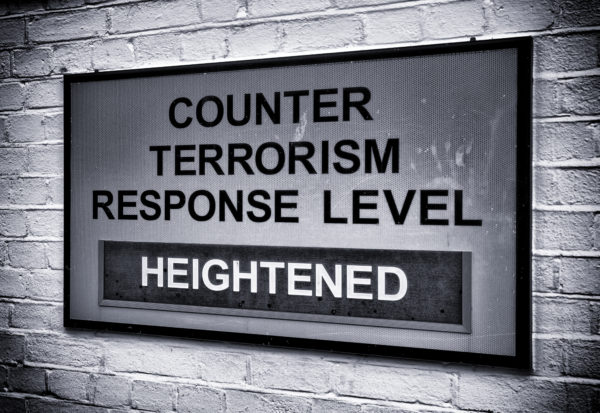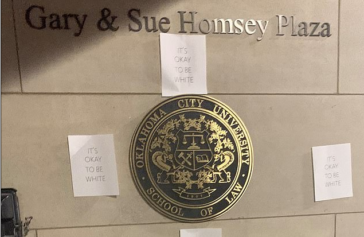A House oversight hearing on the growing threat of white nationalism in the U.S. proved contentious Tuesday as lawmakers pointed to flaws in the current federal law surrounding domestic terrorism.
Tensions ran high in what was the second hearing conducted on white nationalism by the House Civil Rights and Civil Liberties subcommittee. Considering the surge in attacks carried out in the name of white supremacy, congressional leaders have questions on why such violence isn’t considered homegrown terrorism.

Several U.S. lawmakers argued at a hearing Tuesday that white nationalist attacks should be considered domestic terrorism. (Getty Images)
Michael McGarrity, assistant director of the FBI’s counterterrorism division and key witness at the hearing, faced tough questions from lawmakers like Rep. Alexandria Ocasio-Cortez (D-N.Y.), who pressed him on why the law has come up short.
“Is the white supremacy issue not a global issue?” she wondered.
McGarrity agreed that the white nationalism had indeed been globalized, but acknowledged, “The United States Congress doesn’t have a statute for us to use domestic terrorism like we do on foreign terrorists organizations.”
Rep. Ayanna Pressley of Massachusetts also questioned McGarrity about the alleged surveillance of so-called “black identity extremists,” a controversial designation created by the FBI to describe Black political activist groups like Black Lives Matter and others. The bureau released a report late last year coining the term and arguing that the police killings of African-Americans were “likely” to spur an increase in “premeditated, retaliatory lethal violence against law enforcement.”
According to McGarrity, however, Black activists aren’t being monitored.
“There’s no surveillance on that activity,” he told Pressley, according to Yahoo. “I don’t know where that information is coming from.”
Rep. Ilhan Omar (D-Minn.), one of two Muslim women in congress, has faced repeated political attacks and threats on her life, as has Michigan Democrat Rep. Rashida Tlaib, who wiped away tears as she read aloud hate mail she’d recently received.
“The only good Muslim is a dead one,” she read from the letter. “How is that not enough to fall under domestic terrorism?”
Because the U.S. has no specific criminal charge for domestic terrorism, white nationalists who commit such attacks are typically only prosecuted on weapons or other charges, such as hate crimes, and are not prosecuted under the statutes that terrorists affiliated with foreign groups like ISIS would face.
There can be little material difference in sentencing between terrorism crimes and others. Dylann Roof, the white supremacist who massacred nine Black worshippers in the 2015 Charleston, South Carolina, mass shooting at an AME church, was sentenced to death on federal hate crime charges. On the other hand, right-wing extremist Christopher Hasson, arrested earlier this year on weapons charges after authorities said he was plotting to commit mass murder, has been allowed a bond and is facing a less severe penalty than he would under terrorism conspiracy charges.
Moreover, Yahoo News reports that white nationalists aren’t on the radar of the U.S. National Counterterrorism Center, as the agency is barred from surveilling purely domestic terrorists.
This is despite the fact that white supremacists are responsible for 83 percent of extremist murders in the last 10 years, including the killings of police officers, according to a report by the Anti-Defamation League. Rep. Jamie Raskin (D-Md.) cited the findings in his opening statements Tuesday, pointing out that between 2009 and 2018, far-right extremists accounted for 73 percent of murders. Meanwhile, Islamic terrorists were behind just 23 percent of murders.
Raskin noted that police have been able to thwart about three-fourths of all Islamic attacks since 2001, but said only about one-fourth of all attacks by white extremists were stopped during the same time frame, according to a study by the University of Maryland’s terrorism center.
“How many far-right extremist attacks could have been prevented if we had taken that threat as seriously as we had taken the threat of Islamist fanatical extremism?” Raskin asked.
The Maryland lawmaker is among a number of Democrats pushing for more sufficient laws to protect potential victims of white supremacy. An emotional Tlaib didn’t hold back in her plea.
“I’m a mother,” she said. “I want to go home to my two boys.”


